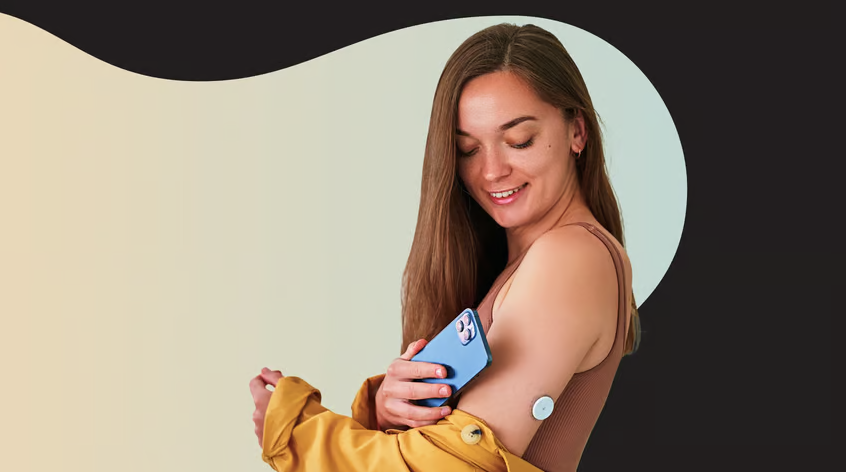Blog
Blog
How Pharma Can Harness Education to Transform the Health Journey

Half of patients have at least one health condition for which they’d really like to find a better treatment — and 76% of patients report that health education helps them control their health and wellbeing.
Education is much more than basic treatment information. It’s about delivering ongoing support for patients through a cohesive experience of tools and services. To be effective, education must be built for the people it serves and the challenges they face. To drive action, it should deliver accessible, clear, and relevant information, not just about treatments but the many interconnected aspects of holistic wellbeing.
As patients increasingly steer their own health journeys, pharma marketers have an opportunity to make an impact through health education that drives informed and proactive decision-making.
The Immediate Impact: Answering Critical Questions
The onset of a medical condition is often fraught with uncertainty. Patients are overwhelmed and seek clear, immediate answers to their questions about treatment options. The vast majority of patients (89%) research prescribed or potential medications, with 61% looking up potential side effects and 47% seeking information on medication costs.
Clear, concise treatment information can help patients make informed choices at this stage. A Healthline Media survey showed 56% of patients prefer treatment resources that use clear, easy-to-understand language, and 43% want a quick answer to their treatment question.
This initial interaction is pivotal; it sets the tone for ongoing patient engagement and trust in the resource. Providing straightforward, accessible, and highly relevant information can alleviate anxieties and set the foundation for informed patient decisions.
The Next Steps: Anticipating Needs and Guiding Forward
Beyond answering immediate questions, educational support should anticipate what patients need next, even if they don’t realize it yet.
Half of patients say they want content that helps them understand what to expect over their full treatment course, while 38% of patients appreciate Rx resources that offer helpful suggestions for the next steps.
Support isn’t just about medication adherence — patients need resources that address the many lifestyle concerns, like diet, exercise, and mental health, that are part of the chronic condition experience. Notably, 43% of health consumers prioritize and look for resources that account for their lifestyle and medical history. For the Healthline type 2 diabetes newsletter, 82% of opt-ins are looking for Nutrition solutions, showing the strong connection between condition and lifestyle. Pharma marketers can align with platforms that combine condition perspectives with lifestyle advice and guidance to meet this consumer need.
To anticipate needs, educational content should target common adherence challenges, addressing potential issues before they become a barrier to action. One common barrier is costs — nearly three in five have experienced out-of-pocket costs they couldn’t afford. And yet, of consumers who say affordability is the most challenging aspect of the treatment process, only 23% have used payment support programs or manufacturer coupons. This suggests an opportunity for pharma brands to show up with cost solutions earlier in the educational journey, where patients are already engaging.
The Ongoing Journey: Opening Gateways to Comprehensive Support
Educational resources can lead patients to a wider array of engagement options, like condition-specific online communities, pharmacy locators, or doctor’s visit discussion guides — giving patients more opportunities to both engage in the ecosystem and take action toward a healthier lifestyle. 62% of health consumers say they would like one place to manage all of their health needs, including answering health questions, researching doctors, and shopping for health products.
For patients, treatment and care journeys are inherently surrounded by and interconnected to overall wellbeing. Health platforms leverage their deep audience understanding to build tools and services that fit the full picture of patient journeys, challenges, and wellness interests, opening the door to many opportunities to help patients learn, engage, and stay motivated.
For instance, 68% of patients say they want helpful hints about small, healthy actions they can take each day. Other services might offer ongoing support and connection, such as chronic condition communities for the 35% of patients who like to learn about treatment options from others’ experiences.
Empowering Health Through Education
Patients are increasingly in control of their health decisions and rely heavily on educational resources. From initial symptoms, to finding a doctor, to ongoing treatment, clear and easy-to-understand guidance can help patients more effectively manage their health.
Today’s health platforms offer sophisticated digital education pathways that help guide patients from their initial questions to personalized engagement and real-world action. Pharma has an opportunity to partner with these platforms — and in fact, 46% of patients are open to interacting with pharma brands through health websites. Through these partnerships, pharma brands can harness the power of education and truly provide comprehensive support toward healthy outcomes.
SOURCES:
Healthline Media Health Segmentation Survey, Dec 2023
Healthline Media Patient Experience Survey, Mar 2024
Healthline Media Consumer Drug Information Pages Visitor survey, Feb-May 2022
Healthline Media Health & Wellness Survey, Sep 2022
Healthline Internal Data, 2024






